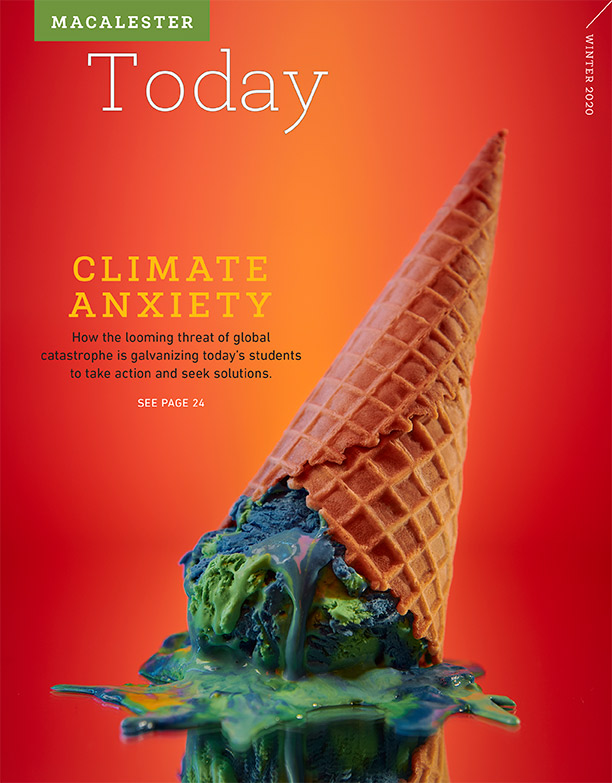
Megan Vossler is a studio art professor and artist specializing in drawing.
Any stand-out books you’ve read recently?
Braiding Sweetgrass, by Robin Wall Kimmerer, envisions a reciprocal relationship between humans and nature. The author is a botanist who views the natural world through an indigenous lens. Each chapter centers on a different element of the natural world, from the exalted to the commonplace, interspersed with indigenous history and poetic storytelling.
What’s one of your all-time favorite reads?
The Summer Book, by Tove Jansson. She is best known for the Moomintroll books, but this one is about a young girl who spends the summer with her ailing grandmother on a tiny Finnish island. Their days are shaped by the ever-changing presence of the sea. It’s very tender and whimsical, but also a meditation on grief and resilience.
What book is crucial to understanding your academic niche?
My niche is drawing, but it’s also creativity in general. These two little treasures address different challenges of being an artist. Keep Going, by Austin Kleon, includes 10 rules for how to structure your creative life in a way that honors the process as much as the end result. How to Not Always be Working, by Marlee Grace, addresses the other side: creating boundaries around your working life. When your work is very integrated with the rest of your life, as it is for many artists, it can be hard to know when the work stops and your life starts.
Any guilty pleasure reads?
I adore picture book illustration, so I read a lot of picture books. The Shortest Day, written by Susan Cooper and illustrated by Carson Ellis, is a gorgeous new book about the winter solstice. One of the great things about having a young child is revisiting this whole world of children’s literature that I’d forgotten about for a while.
What one book would you recommend to everyone at Macalester?
Hope in the Dark, by Rebecca Solnit, is a history of progressive social change in the last 30 years. She believes that hope is a necessary part of activism, which she sees sometimes getting mired in despair. A necessary part of hope for her is recognizing the significance of incremental change, even when drastic change is your goal.
By Rebecca Edwards ’21
January 21 2020
Back to top





